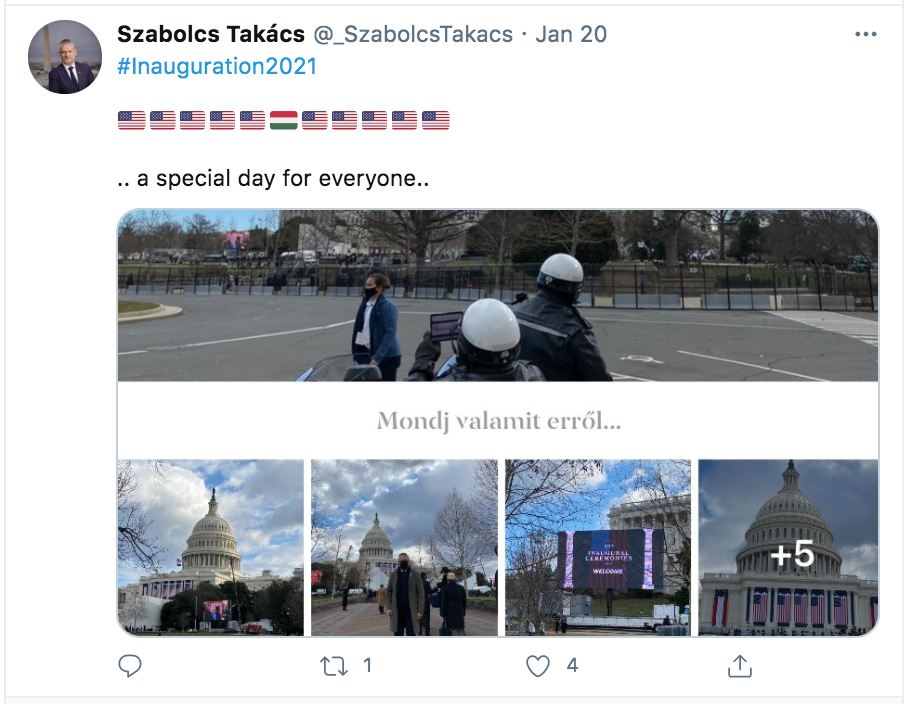Keresés: %s
Keresés: %s
Hungarian Biochemist Katalin Karikó Wins Public Media’s Person of the Year Award

Hungarian biochemist Katalin Karikó, a senior vice president at German biopharmaceutical company BioNTech, is the inaugural winner of the Public Media’s Person of the Year Award, public media foundation MTVA announced on Wednesday.
The award, founded by public service media operator Duna Médiaszolgáltató and MTVA, is handed out at the end of each year to those whose professional careers have delivered lasting value and who had a significant impact on current events over the last year, MTVA said in a statement.
Because of the impact of the novel coronavirus pandemic on 2020, Hungarian public media chose Karikó, whose work was crucial in the development of one of the vaccines against the virus, as the recipient of this year’s award.
Karikó graduated from the University of Szeged with a degree in biology. She obtained a PhD at the Szeged Biological Research Centre in 1983 before continuing her career as a biochemist in the United States.
Duna Mediaszolgaltato chief executive Menyhért Dobos praised Karikó’s role in “allowing humanity to overcome” the coronavirus pandemic. “There could not be a more worthy recipient of the Public Media’s Person of the Year Award than Katalin Karikó, whose discovery and work has restored hope to us all,” Dobos said.
MTVA chief executive Dániel Papp said the award served to preserve and enrich Hungarian national identity, adding that Karikó was an “important treasure” to Hungarians all around the world.
Featured photo by Attila Balázs/MTI
Source: Hungary Today/MTI
U.S.-Hungarian Cooperation in the Field of Stabilization and Humanitarian Aid
The Hungary Helps Program (HHP) delivers Hungary’s humanitarian assistance within a unitary framework. Through HHP, Hungary strives to assist the world’s most troubled communities, including providing direct support for persecuted Christian communities. Since 2017, Hungary provided more than $60M assistance through HHP in the Middle East, Africa, and Asia.
In December 2018, the Government of Hungary signed a Memorandum of Understanding with USAID to respond to the persecution of religious minorities in the Ninawa Plains of northern Iraq. Based on the MOU, two coordinated programs were launched in October 2019 in two locations, in Qaraqosh, and in Sinjar. In Qaraqosh the projects cleared rubble and mines rehabilitated 100 locally-owned shops and rebuilt 35 residential buildings damaged by Daesh, contributing to the return of IDPs. In Sinjar, the projects improved the electricity system in the city and surrounding villages, set up a bakery in the refugee camp of Khanke, restored health facilities, and renovated apartments to provide safe housing and services to 40 Yazidi women and their children, living in refugee camps.
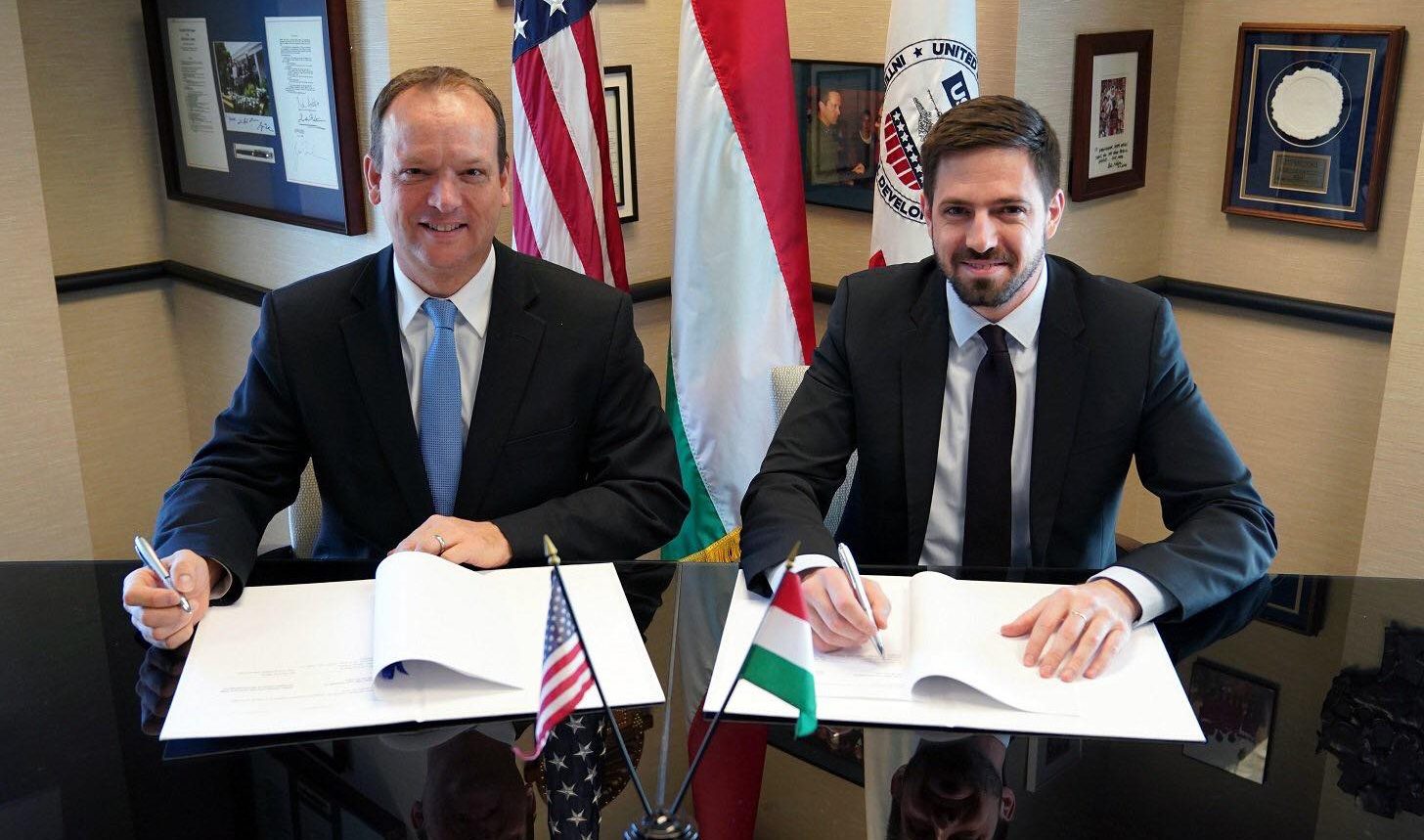
For the last year, HHP successfully logged four stabilization projects, also as D-ISIS stabilization projects, carried out in Iraq and northeast Syria in the sum of $2,305,000. These programs follow the footsteps of an earlier success story in Iraq, where HHP provided cca. $2,000,000 to reconstruct 950 homes in Tel Askuf and 41 in the neighboring Baqof, assisting more than a thousand families in returning to their homes.
Hungary will continue to participate in humanitarian and stabilization programs based on its principle that assistance is most effective if provided at the place of need, enabling the return of refugees and IDPs. Only this way, their human rights can be fully restored, also facilitating reconciliation and economic recovery in war-torn areas.
To learn more about HHP activities please see the latest Newsletter of HHP
The United States congratulates on the 30th Anniversary of the Visegrád Group (V4)
Congratulatory Message on the 30th Anniversary of the Visegrád Group (V4)
PRESS STATEMENT NED PRICE,
DEPARTMENT SPOKESPERSON
FEBRUARY 9, 2021
The United States congratulates the Czech Republic, Hungary, Poland, and Slovakia on 30 years of partnership in the Visegrád Group (V4) format. As NATO Allies and EU member states, V4 countries play important roles in strengthening Central Europe and the Transatlantic Alliance. Since its establishment in 1991 to support accession to NATO and the European Union, the V4 has amplified the collective voices of the Czech Republic, Hungary, Poland, and Slovakia on important regional issues, including by supporting the Euro-Atlantic integration of the Western Balkans and the EU’s Eastern Partnership countries through International Visegrád Fund programs to strengthen democratic institutions and civil society. The United States looks forward to continued dialogue with the Visegrád Group to address shared challenges, including fighting and recovering from the global pandemic; improving cyber and energy security; combating climate change; countering disinformation and malign influence; and strengthening democratic institutions, the rule of law, and independent media.
Source: https://www.state.gov/congratulatory-message-on-the-30th-anniversary-of-the-visegrad-group-v4/
‘Hopefully, Hungarian-American relations will not be about insults’ - Interview with Ambassador Takács
Mr. Ambassador, you are one of only a few people who could attend the inauguration of Joe Biden. What security measures were taken before the ceremony? What were your impressions?
Yes, indeed, I represented the Government of Hungary at the inauguration—this is quite usual, it is always ambassadors who represent their country at the inauguration of a US president, they are the ones formally invited. The situation, however, was not typical, I should say that it was atypical from several aspects. Firstly, we have been facing a global challenge for almost a year now the like of which we have not seen for at least a hundred years. Obviously, I’m referring to the coronavirus pandemic, which posed limitations to this event as well. Another unusual element was that the former president of the United States did not attend the inauguration of the new president. Naturally this happened for domestic reasons, because of the divergent approaches to the elections. Secondly, certain events took place in early January in the US, at the Capitol, which prompted increased security measures.
The situation in Washington was as if it were a war zone. 25,000 troops were deployed to support the DC police and the secret service teams already on duty. Naturally, it was also a significant display of political power.
Two important parts were missing: first, the outgoing president and his wife are traditionally escorted out by the newly installed president and vice president. This, as you know, did not happen, as President Donald Trump had left Washington and travelled to Florida by that time. Secondly, the traditional inaugural luncheon was also cancelled because of the pandemic. So some customary elements were missing, but overall we can say that the ceremony took place as it was supposed to.
In the past 4 years, Hungarian-American relations were friendly, Trump and the Hungarian government found a lot of common ground. Biden visited Hungary in 1977, we could say he played a role in easing the relations between the two countries. This is something that we could build on, but during his campaign Biden didn’t speak positively about Hungary, he even called it a totalitarian regime at one point. In light of this, what kind of relations do you think we can expect?
Let me start with stating our intentions. It is Hungary’s intention to maintain and develop the best possible relations with the United States, regardless of what administration, what government is in charge. It is up to the citizens of the US to decide who can form a government there. We fully respect that.
These past 4 years created a strong basis for cooperation, which, I believe, we can continue if both parties act in good faith.
We trust that our relations with the new American administration will be like what we had with the previous one, since the past 4 years saw great, unprecedented political cooperation. In the years before 2016, the quality and the balance of the cooperation between the leadership of the two countries were not even close to what we saw between 2016 and 2020.
We do hope that under the new Democratic administration the political relations of the two countries will not plummet to the level where they were during the previous Democratic administration.
Hopefully, in the upcoming period Hungarian-American relations will not be about insults and labelling one another, but about how many areas the two countries have shared interests in. I think there are a lot of misunderstandings and things are knowingly or unknowingly misinterpreted in this field. Our task is to find a common framework of interpretation in those issues, too, where we seemingly have very different positions. I think with good communication, cooperation and a positive attitude on both sides we could clarify many issues.
Hungary is a great partner and ally of the United States. NATO, the defense architecture, is an important part of this cooperation, and also economic and trade relations, energy policy and many other areas. Social relations between the two countries are also great. Let’s not forget that 1.5 million Hungarians live in the US, and this has always been a strong link between the two countries.
This year we mark the 100th anniversary of the establishment of diplomatic ties between the United States and Hungary—this is a year of celebration. You mentioned the 1970s, when the current president, Mr. Biden, visited Hungary, and that is also a part of this 100-year history. After World War 1, between the two wars, the United States was an important partner of Hungary, and after 1956 many Hungarian people found their new home there. Many Hungarian survivors of the Holocaust settled in the US, and I believe that this is also a strong link. The US played a notable role in the repatriation of the Holy Crown of Hungary, and after the political transition, the US helped the free and democratic Hungary join NATO in 1999.
There are so many values that would be a shame to waste, by either party.
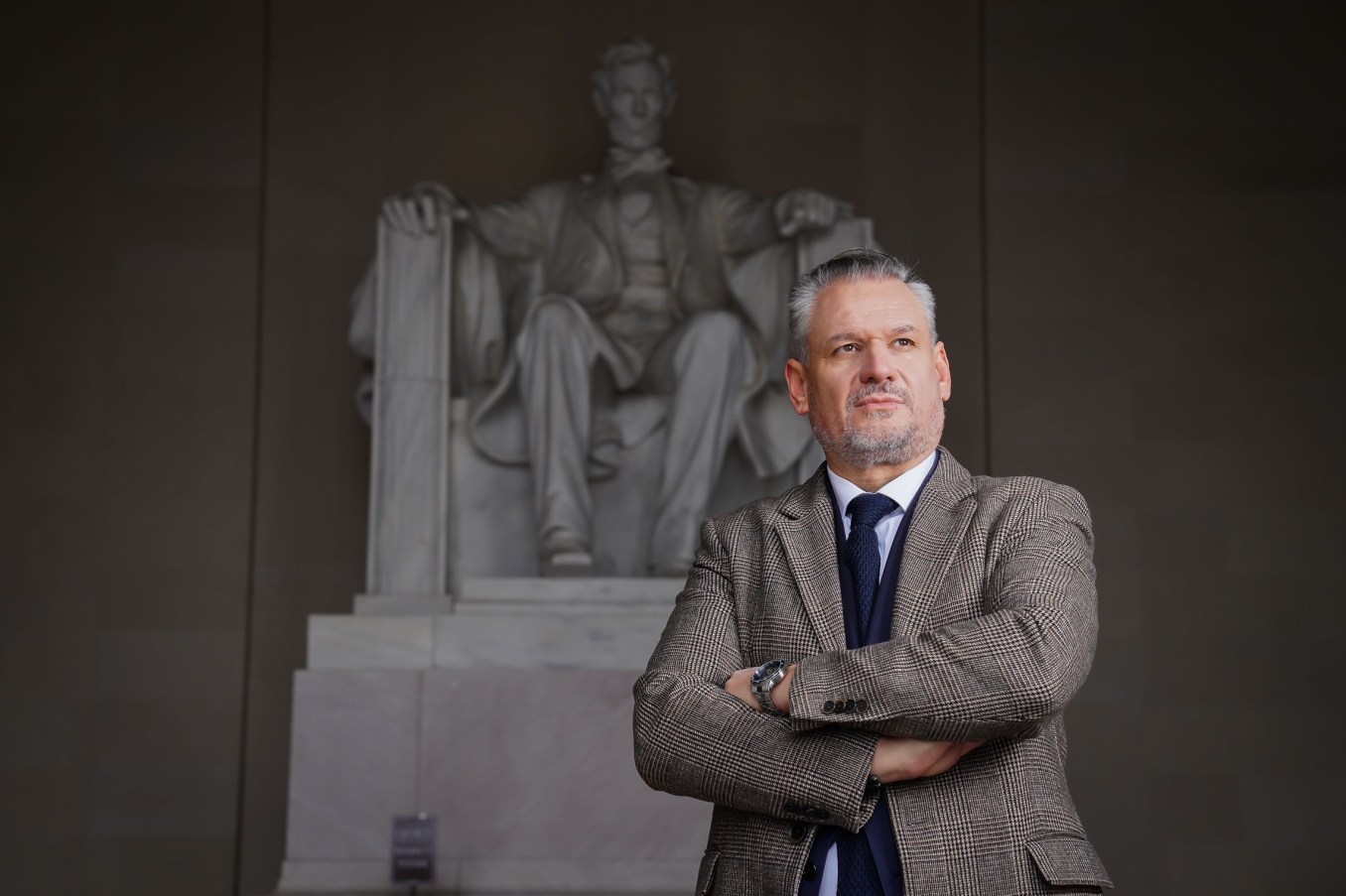
What areas may be important in the coming 4 years in US-Hungarian relations? You mentioned NATO and trade relations, for example.
I believe that it is a legitimate expectation of the US from its European allies that all NATO members must fulfil the commitments they made. We have outstanding results here. Within NATO, Hungary is one of the most reliable allies of the US. We take part in a number of international military missions that are important for the US, for example in Afghanistan and Iraq.
Recently we have made significant efforts to increase our defense budget. By 2024 at the latest, we will reach the level we committed ourselves to as NATO members, namely 2% of the GDP. What is more, in our defense spending the increase in the purchase of new equipment exceeded the expected 20%, and there are several bilateral agreements that strengthen military cooperation with the US. This is to say that the situation in security policy is very good.
I also have good news to report about trade and economic cooperation—a great partnership has evolved over the past few years.
After Germany, the United States is now the second largest investor in Hungary. Approximately 1700 American companies employ over 100,000 Hungarians. Trade between the two countries increased by almost 2.5 percent in 2019.
There is a highly sensitive, or rather a highly strategic area: cooperation in energy policy. It is also the goal of the United States to ensure wider opportunities for Central Europe, including Hungary, when it comes to energy supply. Our goal is to access not only the regional, but also the global gas market. Today is an important day in this respect (the interview was conducted on January 29), as today Minister Péter Szijjártó attended, on Krk island, Croatia, the inauguration of the LNG terminal, which became operational through collaboration with Hungarian state-owned companies. As a diplomat working in Washington, D.C., I am very proud that on January 1 an American tanker was the first to transport liquified natural gas to the terminal in Croatia. It was a historic event.
It is the first time in 70 years that Hungary can import from the global energy market, not just from the region.
There is another area that, I believe, is extremely important for the new democratic administration: climate protection and climate change. Hungary also pays particular attention to renewable energy sources, and the positions of the two countries on nuclear energy are close. The commitments we made together in Paris and climate neutrality would be very difficult to achieve without nuclear energy.
Do you think the Biden administration will go on with the Abraham Accords? What do people in Washington think about it?
The United States and Israel have always been allies and have always had an very stable cooperation. Based on that, I think the Abraham Accords are a foreign policy legacy of the Trump administration that cannot be ignored by the new government.
Everyone begins to realize that the Hungarian government supports Israel’s stability to a greater extent and in a more consistent manner than other European partners do.
We regularly and consciously oppose all biased criticism against Israel, both in the European Union and in the UN. We emphatically supported the Middle East policy of the previous American government. It is our opinion that the peace agreements with the Arab countries have definitely contributed to the stability of the Middle East region, which, indirectly, can help the stability and security of Europe as well.
The first indications suggest that the Democratic government does not intend to ignore this. Officials of the Biden administration, including the new Secretary of State, Anthony Blinken, said at his confirmation hearing that they intended to build on these results. Hungary definitely welcomes this.
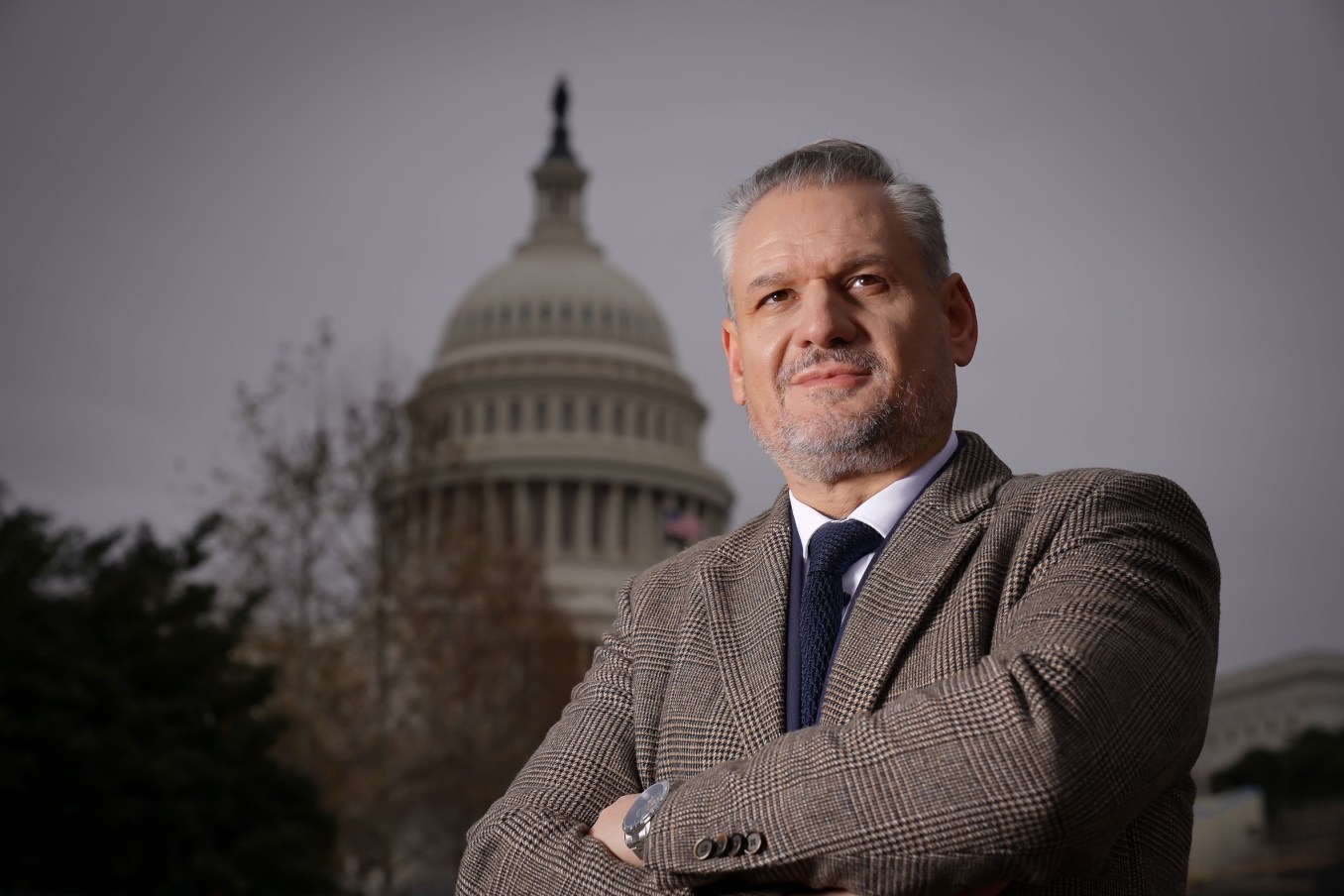
You used to serve as the Ministerial Commissioner for combating anti-Semitism—what do you think about the accusations that appear in the US press from time to time that there is anti-Semitism in Hungary? In early January, you gave an interview to Jewish Insider, and they cited the Soros-campaign as an example of anti-Semitism. An expert quoted in the article said that the Hungarian government didn’t recognize the role of the then-leaders of the country in the Holocaust. What do you think about these?
I think this latter comment you quoted is silly, it is an unfounded, false accusation. Let me give you an example. On January 27, on the International Holocaust Remembrance Day, Prime Minister Viktor Orbán expressed repeatedly in a public letter how unacceptable the actions of the Hungarian government were at that time. The letter is addressed to Ronald S. Lauder, the President of the Jewish World Congress, and it is publicly available. Another example is from 2017, when the Israeli Prime Minister, Benjamin Netanyahu, visited Budapest and Mr. Orbán made it clear at a joint press conference that the Hungarian state had not protected its citizens at that time.
Minister of Prime Minister’s Office Gergely Gulyás also issued a statement on the International Holocaust Remembrance Day, making it clear that 80 years ago its own homeland failed to protect the Hungarian Jewish community. He added, and it is very important, that today in Europe, it is Hungary where the Jewish community is the safest. We make efforts to protect the Jewish identity, Jewish traditions and the Jewish culture. We try to give as much as possible back to the Hungarian Jewish community.
We renovate synagogues, we give back community spaces and religious spaces so that Jewish cultural life can thrive. Besides that, there is zero tolerance against anti-Semitism in Hungary.
You mentioned George Soros. I have said many times, both here and in the US, that we are not interested in George Soros’s ethnicity. It is not us who make lists of Jews and non-Jews in Hungary. I would like to add that the Prime Minister of Israel has the same problems with the philosophy that this gentleman represents. I wouldn’t like to say something that absurd that the Israeli Prime Minister is anti-Semitic.
We would like to preserve the Judeo-Christian cultural heritage of Europe. This includes the possibility of kosher slaughter and circumcision as well. These are matters of cultural identity, and we see that in Western Europe there are many places where efforts are made to curb these.
We will always stand up against this, because if Jewish traditions and the rituals associated with the Jewish identity are banned in Europe, it practically says that the European Jewish community has no future. Hungary will not be a part of this. We obviously need to work so that it will be clear for the American Jewish community as well.
Here in the United States much more severe anti-Semitic acts take place than in Hungary. And in Western Europe, the Jewish community cannot feel safe even physically. No attacks like the ones in Paris, Halle and Pittsburgh have happened in Hungary.
If I can ask you a personal question, would you tell me how you got so close to Jewish issues, how this aspect appeared in your career and why you think the issues of the Jewish community are so important?
This is primarily important for me as a Hungarian, not only as a diplomat or someone working for the government. The Judeo-Christian culture and the fight against anti-Semitism are a part of the Hungarian identity and a part of the European identity. Europe has a Judeo-Christian heritage, not necessarily in a theological sense only, but also culturally.
I believe that the Hungarian people who took part in the death of 600,000 of their fellow Hungarians were not only murderers, they were also traitors. The Hungarian Jewish community has always contributed to the economic, cultural, social and artistic development of the country. In the Holocaust we lost the very best of the Hungarian nation.
I believe that every Hungarian should be aware of these facts and this is why education is so important.
The government has done a lot, we have passed legislation, joined international organizations, for example the IHRA (International Holocaust Remembrance Alliance), which I had the honor to lead. We made the anti-Semitism definition of IHRA a part of Hungarian legislation and there are laws in Hungary that sanction anti-Semitic speech. In the course of my career, working in my profession, I was involved with Israel as early as 2012-2013—I was the president of the Hungarian-Israeli Joint Committee for Economic Cooperation for a year and I oversaw Hungarian-Israeli relations. In early 2015, when I started working as a state secretary at the Prime Minister’s Office, the issues related to the Jewish community and to the IHRA were transferred from the Ministry of Foreign Affairs to the Prime Minister’s Office, which showed the intention to deal with these issues at the highest levels of government.
I believe we can be proud that the Hungarian-Jewish spirit and culture are becoming world famous again, showing globally that there is a realistic chance of revival after the Holocaust.
Source: https://neokohn.hu/2021/02/09/hopefully-hungarian-american-relations-will-not-be-about-insults/
Hungary Opposes the ICC Probe of Israel

Hungarian Foreign Minister Péter Szijjártó voiced Hungary’s disagreement with the ICC Pre-Trial Chamber’s ruling on February 5, 2021, ascertaining jurisdiction over alleged war crimes in Gaza, the West Bank, and East Jerusalem. According to the Minister, “Hungary does not agree with this decision. During the legal procedure, we already signaled that, according to our position, Palestine does not have criminal jurisdiction over Israeli citizens. We have always supported Israel’s right to defend itself and we believe that peace in the region can only be achieved through negotiations based on mutual respect. The decision of the ICC does not take us closer to this.” The statement came at the heels of a phone conversation between the Minister and his Israeli counterpart, Gabi Ashkenazi. https://hungarytoday.hu/fm-szijjarto-hungary-disagree-icc-ruling-gaza-west-bank-israel/
In his message above, Minister Szijjártó was referring to the fact, that already in February 2020, Hungary, as a Member State of the Rome Statute, filed an amicus brief with the ICC, questioning the Court’s jurisdiction to proceed with this investigation. Hungary on the other hand has long supported Israeli-Arab reconciliation, including the Abraham Accords. Péter Szijjártó was the only European Foreign Minister invited to witness the signature of the Abraham Accords on September 15, 2020.
Hungary is not the only Rome Statute Member State that believes that the ICC overstepped its jurisdiction in this case.
https://www.jpost.com/international/germany-hungary-join-states-opposing-icc-probe-of-israel-658416
AmCham roundtable with Ambassador Szabolcs Takács
At the invitation of the American Chamber of Commerce in Hungary (AmCham Hungary), on the 11th of February 2021, Ambassador Szabolcs Takács gave a comprehensive virtual lecture on Hungarian-American relations to the chamber's leadership and member companies. Ambassador Takács praised the development of bilateral economic relations and thanked the representatives of the companies for their commitment to their investments in Hungary. During the challenging economic situation brought on over last year by the coronavirus pandemic, it was the American companies that created the most jobs in the country. Today, the United States remains the second-largest foreign investor in Hungary, with around 1,700 US companies employing 106,000 workers. The Ambassador emphasized that the exceptionally good relationship between the two countries provides a strong basis for close cooperation.
Hungary condemns in the strongest possible terms the February 15 rocket attack in the Kurdistan Region of Iraq
Please see the statement of the Government of Hungary condemning the rocket attack on Erbil in the Kurdistan region of Iraq. Hungary, as a proud member of the D-ISIS Coalition, stations part of its Iraqi contingent at the military base that came under attack on February 15.
Hungarian Insider exclusive interview with Szabolcs Takács, Hungarian Ambassador to the U.S.
What are the key priorities of the Hungarian government for 2021 and beyond, and how are these similar to the priorities of the new U.S. government?
Obviously, the world has completely changed since last March. We are facing a global challenge that defines the plans and maneuvers of all governments around the world. The Hungarian and the U.S. governments are no exception.
There are three priorities for the Hungarian government, and those are managing mass vaccination, gradually lifting economic restrictions and rebooting the economy. The vaccine is clearly the only way out of the pandemic, and now the most important task of the Hungarian government is to procure as many doses of the vaccine as possible. As soon as we have enough vaccines, we can launch the Action Plan to Reboot the Economy.
Before COVID-19, the Hungarian economy was one of the most stable economies in Europe with one of the highest growth rates. The pandemic has certainly changed many things; however, Hungarian economic results are still more promising than the results of other countries.
Since last March, we managed to protect 280,000 jobs in Hungary. After protecting the health and lives of the people, protecting jobs and the economy is the most important task. The number of Hungarians who had a job in December 2020 was the same as a year prior, while the unemployment rate is only 4.3 percent, which is the third lowest figure in the European Union.
The Economy Protection Action Plan consisted of defensive measures, while the Action Plan to Reboot the Economy is an offensive strategy to counter the economic crises caused by COVID-19.
The United States is one of the economies that has been most seriously hit. The new administration has a big task ahead of it to recover. They plan to vaccinate 100 million people in the first 100 days of the administration and implement a USD 1.9 trillion COVID-19 relief package as early as March, followed by a huge investment in infrastructure.
Our priorities are similar, and I believe this creates new opportunities for collaboration.
As a result of the coronavirus, companies might redeploy their manufacturing facilities. What is the goal of Hungary in terms of FDI, especially economic collaboration with American companies?
American companies, just like any other company from around the world, realized that the Hungarian government is very pro-business. Based on investors’ feedback, I can say that, regarding their investments, they always get very prompt and attentive answers from key Hungarian ministers, including Minister of Foreign Affairs and Trade Péter Szijjártó, Minister of Innovation László Palkovics and Minister of Finance Mihály Varga.
Investors consider Hungary a country with a pro-business government in the very lucrative European Single Market. Obviously, our goal is to further increase the export figures of Hungary, as well as FDI in Hungary.
It speaks for itself that the United States is the second-largest investor in Hungary after Germany. Out of 50 major US companies, 40 are present in Hungary and provide jobs for 105,000 Hungarians.
Before the pandemic, the unemployment rate was 3.4 percent in Hungary. In March 2020, we started to implement the Economy Protection Action Plan, under which 1,435 companies implemented investments totaling EUR 4.8 billion. Thanks to COVID-19 measures including incentive schemes, tax cuts and wage subsidies, the Hungarian government has helped companies protect investments. And American companies have created the most jobs since last March — 2,496 jobs in total, or 25 percent of all jobs created since the outbreak of the pandemic.
Once the government took office in 2010, we had very ambitious plans to create 1 million jobs in Hungary. Since then, we have managed to create 840,000 jobs in Hungary.
Many countries in Europe, and beyond Europe, provided social aid. Our approach was different; we focused on protecting people’s jobs instead. We are a work-based economy, and how we managed the crisis has proven that.
Looking at the latest U.S. investments, we see that BorgWarner invested USD 22.3 million and later an additional USD 14.5 million in eastern Hungary. Diligent Corporation decided to set up its new global R&D center in Budapest from an investment of USD 37,5 million and created more than 300 high added-value jobs. GE is another large American investor in Hungary and is looking to invest USD 11.1 million to expand its Digital Development Center in Budapest. IBM Client Innovation Center will also create about 300 jobs with an investment of USD 11.7 million.
Regarding trade and investment, we enjoy great cooperation with American companies, and I don’t expect this to change regardless of the political changes.
In 2019, the Business Promotion & Development Campus (BPDC) was established in Washington. BPDC was set up to provide Hungarian companies with a wide range of training programs, aiming to facilitate the entry of Hungarian companies into North America. How is the success of the center measured and what outcome should companies expect to achieve with this support?
Setting up the Business Promotion & Development Campus (BPDC) was a great decision. I believe it is completely in line with the new dimension of Hungarian trade and investment policies. In addition to promoting Hungarian exports and attracting FDI in Hungary, helping Hungarian companies invest abroad is the third priority.
The Hungarian economy has reached a high enough level to make some revolutionary changes and penetrate global markets. The U.S. market is highly developed and lucrative but very competitive at the same time. Hungarian companies need professional advice to successfully operate there. BPDC was established to meet these needs via the support of U.S. professionals. Companies can thus receive help on how to structure their business plans and successfully enter the market.
We already have BPDC alumni, and based on their feedback, BPDC is a great support. This reassures us that BPDC is a very good initiative, and we have strong intentions to keep it.
Why is the entry of Hungarian companies into the U.S. market important for both countries? Are there already use cases or best practices?
I believe the entry of Hungarian companies into the U.S. market is mutually beneficial. Once a Hungarian company has set foot in the United States, it might mean new jobs created in both the U.S. and Hungary. However, it is important to take into account that the U.S. market is changing due to COVID-19.
Hungary is also a high-tech partner of the U.S. in the space industry. An agreement has recently been reached between our countries. It focuses primarily on astronaut training and scientific experiments. What does this agreement mean for Hungary and how can Hungarian companies profit from this collaboration?
Space is a new area for Hungarian – US cooperation, in addition to traditional industries such as energy and security and defense. This would take the Hungarian economy to a new level. We need state-of-the-art and very innovative technologies and ideas, plus we need to take part in research that is conducted in space. Our goal is to send astronauts to space stations by 2025 or even earlier. We need the cooperation of major stakeholders to participate in international space research, and the U.S. is certainly a major stakeholder. Minister of Foreign Affairs and Trade Péter Szijjártó visited the United States last September and signed a cooperation agreement with American spaceflight company Virgin Galactic. Hungarian engineering knowledge is very evident, and Hungary already has an active cooperation with NASA. However, we also work with Russia and the Russian space agency.
NASA also already uses Hungarian-developed dosimeters. Trust is key in the space industry, and Hungarian developments are very reliable and do not malfunction, which certainly elevates our cooperation with U.S. space agencies and companies. We clearly would like to continue these partnerships.
On January 3, the Tristar Ruby LNG tanker shipped 143,000 cubic meters of LNG from the United States. What does it mean for Hungary to have the United States as a national gas supplier? Why do we need American gas?
It has long been a goal of the U.S. and Hungarian governments to create a higher level of energy security in Central and Eastern Europe. Hungary is right in the middle of Central and Eastern Europe, and we need the cooperation of a neighboring country that has a seaport to import American liquefied natural gas. That is obviously Croatia because it is the closest to Hungary. The goal of the Hungarian and Croatian collaboration was to develop the energy terminal in Krk, Croatia, and it was a historic moment when the terminal became operational.
For the first time in 70 years, we have managed to move from a regional gas market to an international gas market. It doesn’t mean that we won’t work with our previous partners, but it does mean we will have more options to negotiate gas prices in addition to ensure the security of our energy supply.
We encourage our partners in the East, such as Romania and the so-called Neptun Deep project, to be operational as well. If we could export gas from Romania, it would greatly contribute to Hungary’s gas-security ambitions.
The Krk terminal is a revolutionary step for energy security, and we hope that the new American administration will realize the joint, bilateral added value of that.
All in all, a new era started in January, but it requires the involvement of all parties.
You had to use a floating LNG plant instead of a land-based one because of environmental reasons. What is the focus of the Hungarian government regarding sustainability and energy policy?
Sustainability is key, and climate change is the most-defining global issue today. The U.S. government has placed climate issues very high on their agenda. The former secretary of state, John Kerry, will be responsible for international cooperation on climate. The new administration has already recommitted to agreements that were abandoned by the previous administration, and they have announced a wide range of climate events to underline the new American climate policy. The U.S. government is also planning to organize a major climate conference on April 22, Earth Day. Secretary of State Antony Blinken, the Secretary of Energy, the Secretary of Transportation and the Secretary of Agriculture all highlighted the importance of climate goals in relation to their agendas.
Hungary has also managed to fulfill the climate goals of the European Union. The EU has decided to cut carbon emissions by 55 percent from levels in 1990. The Hungarian government has reached its targets ahead of the EU average and is working toward achieving climate neutrality by 2050. To achieve this goal, we should remain nuclear, and, therefore, nuclear energy is a key part of our energy policy. The Hungarian energy mix will consist of natural gas, nuclear energy and renewable energy (solar energy). However, gas remains important.
Energy and sustainability are promising areas, where we can successfully work with the new American administration.
Hungary opposes the March 3 statement of the Prosecutor of the International Criminal Court (ICC)
Hungary opposes the March 3 statement of the Prosecutor of the International Criminal Court (ICC) on the initiation of an investigation respecting the Situation in Palestine.
The Hungarian Government has always disputed the decision of the Court that the territorial scope of its jurisdiction extends to Gaza, the West Bank and East Jerusalem.
In the proceedings Hungary submitted amicus curiae observations to the ICC that challenged Palestine’s criminal jurisdiction over Israeli citizens. Hungary remains a staunch supporter of Israel’s right to defend herself. We sincerely believe that lasting peace can only be achieved only through direct negotiations between the parties based on mutual respect. However, the decision of the ICC does not take us closer to this.
In this spirit, we support the March 3 statement of Secretary of State Antony J. Blinken expressing commitment to Israel and its security.
Pope Francis blessed the Hungary Helps Program in Mosul

Tristan Azbej, the State Secretary of the Prime Minister’s Office for the Aid of Persecuted Christians and the Hungary Helps Program, was the first of the invited guests to meet Pope Francis during his historical visit to Mosul.
Tristan Azbej also informed MTI on Sunday that Pope Francis prayed for the much-suffered Christian communities in Iraq in a temple demolished by fanatics of the Islamic State terrorist organization.
At the event, the State Secretary reported to Pope Francis on Hungarian support for persecuted Christians in Iraq, and the head of the Catholic Church blessed the mission of the Hungarians.
Source: https://hungaryhelps.gov.hu/2021/03/08/tristan-azbej-met-pope-francis-in-mosul/
INVITATION to the Virtual Celebration of National Day of Hungary - March 12, 2021
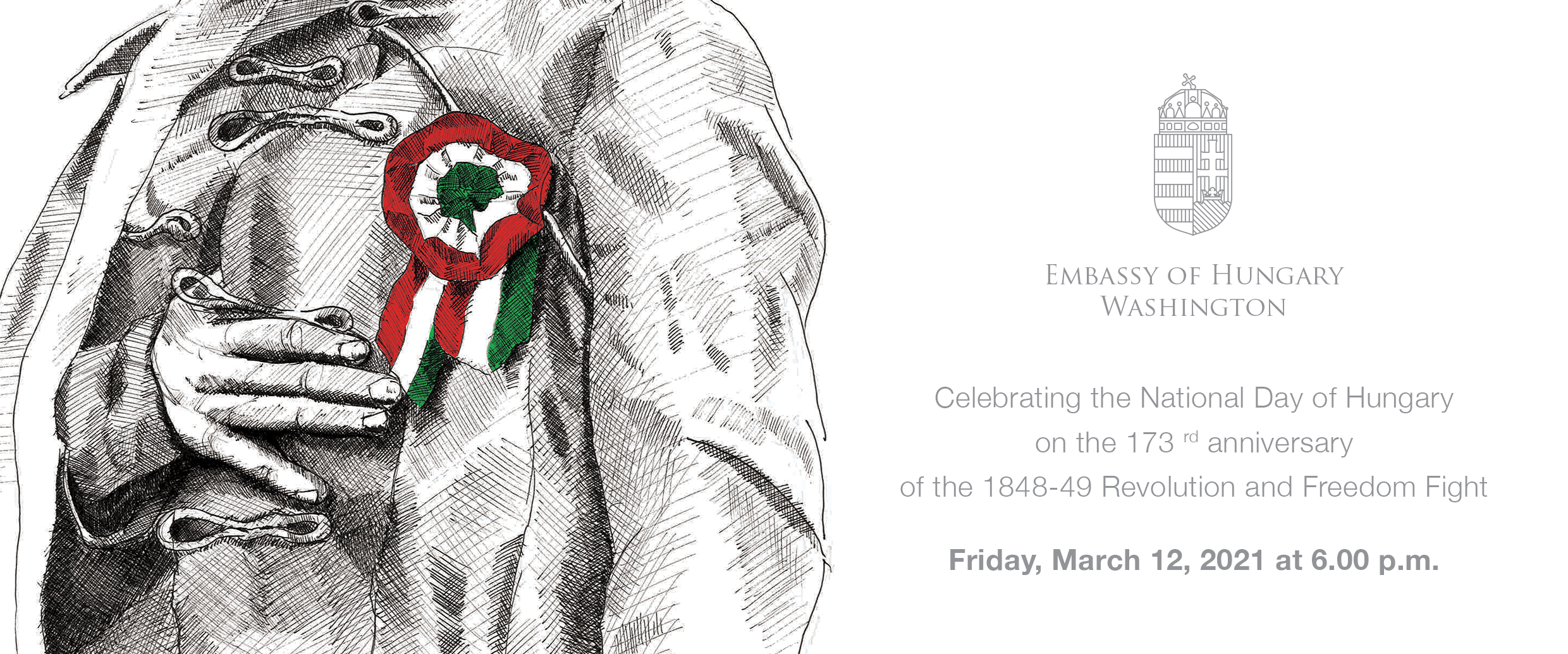
H.E. Szabolcs Takács, Ambassador of Hungary to the United States, cordially invites You to the
VIRTUAL COMMEMORATION OF THE 173RD ANNIVERSARY OF THE 1848-1849 HUNGARIAN REVOLUTION AND WAR OF INDEPENDENCE.
When: Friday, March 12, 2021, at 6.00 p.m.
Where: https://www.youtube.com/c/HungaryInUSA or https://www.facebook.com/HunEmbassy.Washington
The event will be in Hungarian, with English subtitles. The program will include a unique musical performance along with a screening of the movie 80 Hussars directed by Sándor Sára.
To watch the movie, please join the following Facebook group at any time: https://www.facebook.com/groups/464442298244773
The film will be available from 6 p.m. on March 12 till 6 p.m. on March 13, 2021.
We would like to kindly inform those who reside in the DMV area that on March 12, 2021, from 11.00 a.m. until 3.00 p.m. a selection of Hungarian delicacies will be prepared for pick up at the Embassy of Hungary in Washington D.C. (Address: 2950 Spring of Freedom St. NW. Washington D.C., 20008) for the first 200 guests who register to attend our virtual event. Please RSVP by March 10, 2021, at RSVP.WAS@mfa.gov.hu
Virtual commemoration of March 15th
Join us and remember together the heroes of the 1848 Hungarian Revolution and War of Independence! Following the remarks of Ambassador Takács, we’ll enjoy a truly Hungarian musical performance by Szalonna és Bandája, so make sure you have some space and put on your dancing shoes. Then wind down with a gripping drama taking place during the 1848 Hungarian revolution. For the 80 hussars movie, join our exclusive group: https://www.facebook.com/groups/464442298244773
#MagyarnakLenniJó #ProudToBeHungarian
Hungarian mathematician László Lovász has been awarded the 2021 Abel Prize
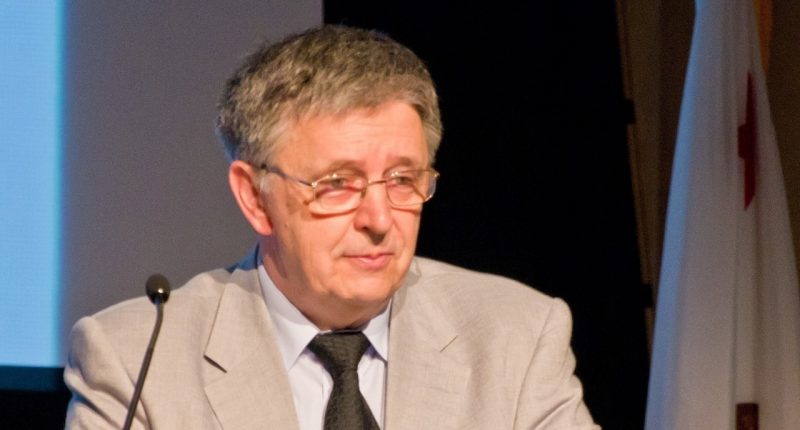
Hungary’s László Lovász has been awarded the 2021 Abel Prize, an honour given out by the Norwegian Academy of Science and Letters and regarded as one of the highest honors in mathematics. Lovász has won the honour together with Israel’s Avi Wigderson of the Institute for Advanced Study, Princeton, US, “for their foundational contributions to theoretical computer science and discrete mathematics, and their leading role in shaping them into central fields of modern mathematics,” the academy announced in Oslo on Wednesday.
Lauding the awardees, Hans Munthe-Kaas, chair of the Abel committee, said that “thanks to their leadership discrete mathematics and the relatively young field of theoretical computer science are now established as central areas of modern mathematics”. Responding to the award, Lovász, a former president of the Hungarian Academy of Sciences, told MTI that he had always been interested in learning how various fields of sciences could be connected. He said he started to research the two fields of discrete mathematics with a special focus on graph theories and theoretical computer science already in the 1960s and 1970s.
Speaking in the context of coronavirus, Lovász said that “looking at the pandemic from the aspect of mathematics is an enormous challenge”, noting that his research team is examining the dynamic of virus transmission by studying human connection networks. The Abel Prize was established in 2002 to recognize outstanding scientific work in the field of mathematics.
Source: https://dailynewshungary.com/hungarian-mathematician-lovasz-a-winner-of-2021-abel-prize/
Read more at: https://www.nytimes.com/2021/03/17/science/abel-prize-mathematics.html
Hungary remains an attractive investment destination for US companies
By the invitation of the US Chamber of Commerce, on March 11 Ambassador Szabolcs Takács gave a presentation on the development of Hungarian-American relations to the member companies of the Chamber. The ambassador’s comprehensive presentation touched on a wide range of topics, including the current political, economic, and health developments in Hungary, as well as the expected developments of transatlantic relations under the new Biden administration. The past year, marked by the coronavirus pandemic, posed many challenges for all countries. However, under these trying times, Hungarian-American economic cooperation has developed favorably since it was the American companies that created the most jobs in Hungary over the pandemic period. Hungary’s business climate remains an attractive destination for American companies who are looking at expanding in Europe, and the ongoing dialogue of recent years between Hungary and the United States provides a good basis for continuing to work closely with the new administration.
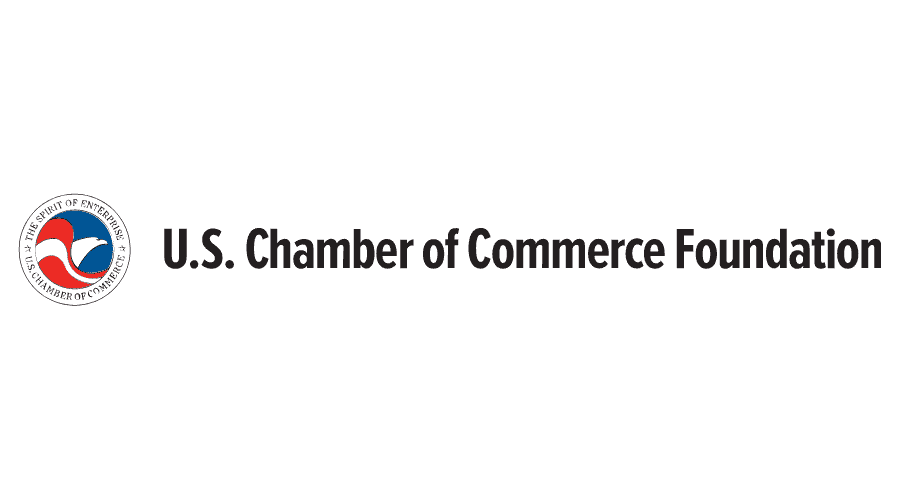
Explore how to do family tree research with the help of the experts of the National Archives of Hungary!

If you are Hungarian, have Hungarian roots, or just simply interested in whether having Hungarian lineage, the experts of the National Archives of Hungary will guide your steps on how to acquaint yourself with family tree research.
Click for the video.
The Hungarian Embassy condemns the gun violence in Indianapolis
The Hungarian Embassy condemns the gun violence in Indianapolis and joins the United States in remembering the victims of yesterday's shooting. We send our condolences to the families that lost their loved ones.
The Hungarian economy could grow by 4.3% in 2021
State Secretary for Financial Policy Affairs, Gábor Gion, held a virtual roundtable discussion with the members of the US-Hungary Business Council on April 15, 2021. Ambassador Szabolcs Takács welcomed the participants of the virtual event, praised the Hungarian-American economic relations, and thanked the representatives of the companies for their continued commitment to their Hungarian investments.
State Secretary Gion reported on the current economic developments in Hungary and described the economic response measures introduced to offset the negative effects of the pandemic situation. The State Secretary stated that ’we are at the forefront of vaccination in the EU, with more than 3 million people already vaccinated, about 30% of the population. With the imposed central bank measures, the Hungarian government has reallocated about 30% of the annual GDP to economic protection. As a result, GDP fell less than previously expected, by a total of 5% last year, compared to an average decline of 6.2% measured in the EU. Currently, it is expected that the GDP will grow by 4.3% in 2021, and 5.2% in 2022. The rate of unemployment has also increased by a smaller amount than previously predicted, increasing from 3.5% before the pandemic to around 4.2%. Despite the pandemic, Hungary has remained a very attractive investment destination for global companies, said the State Secretary.
Representing the USHBC, President Eric Stewart thanked the Hungarian administration for its support in recent years. He indicated that American companies continue to be satisfied with the investment environment in Hungary and consider the pro-business approach of the Hungarian government to be extremely important.
Welcome our newest BPDC alumni company!
The beginning of April marked the end of a month-long mentoring course organized for our newest Business Promotion & Development Campus (BPDC) alumni company, Techno Security Ltd., represented by Export Strategy Director Mr. Zoltán Szilágyi. The extensive mentoring program, organized by professionals from The Alliance for U.S. International Business (AUSIB) in partnership with Planet Defense LLC, covered the most important aspects of succeeding as a business in the United States and provided deep insights into the perimeter-security market within the USA. Techno Security Ltd. provides smart perimeter security solutions that not only offer the highest level of security possible but due to advanced technology integration, enables their customers to reduce the number of security operators or guards required for their corporate operations. The mentoring course was followed up two weeks later with a virtual Demo-Day, which provided an opportunity for Techno Security Ltd. to showcase their products and services to potential partners in the United States.

Statement of the Hungarian-Israeli Friendship Group of the Parliament
The Hungarian-Israeli Friendship Group of the Parliament discussed the events of the Israeli-Palestinian conflict. The Friendship Group recognizes the right of the State of Israel to self-defense and strongly condemns the latest missile attacks against Israeli cities carried out by Palestinian Islamic Jihad and Hamas Palestinian terrorist organizations. The members of the Friendship Group express their sympathy for the victims and trust that peace and rest will be restored in the area as soon as possible.

